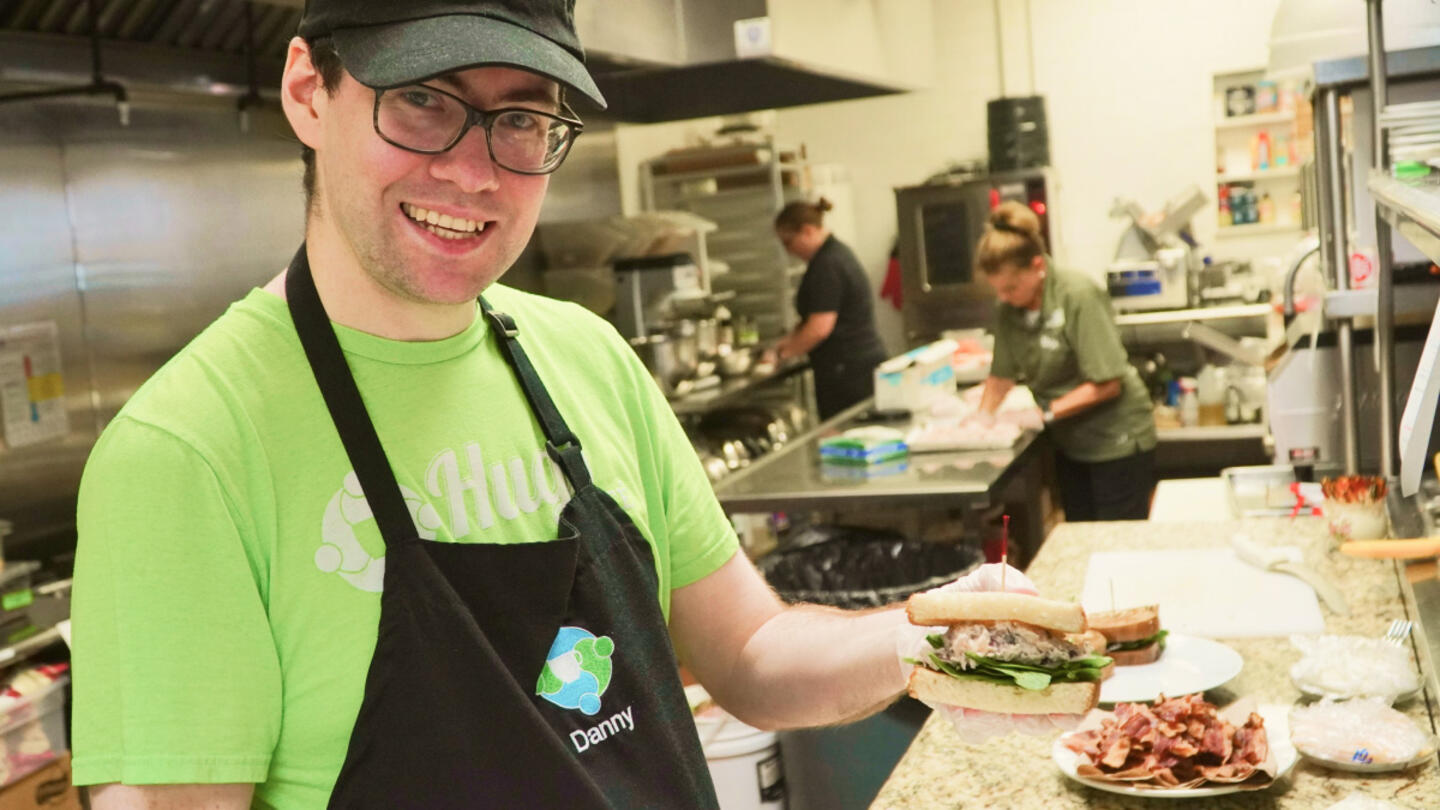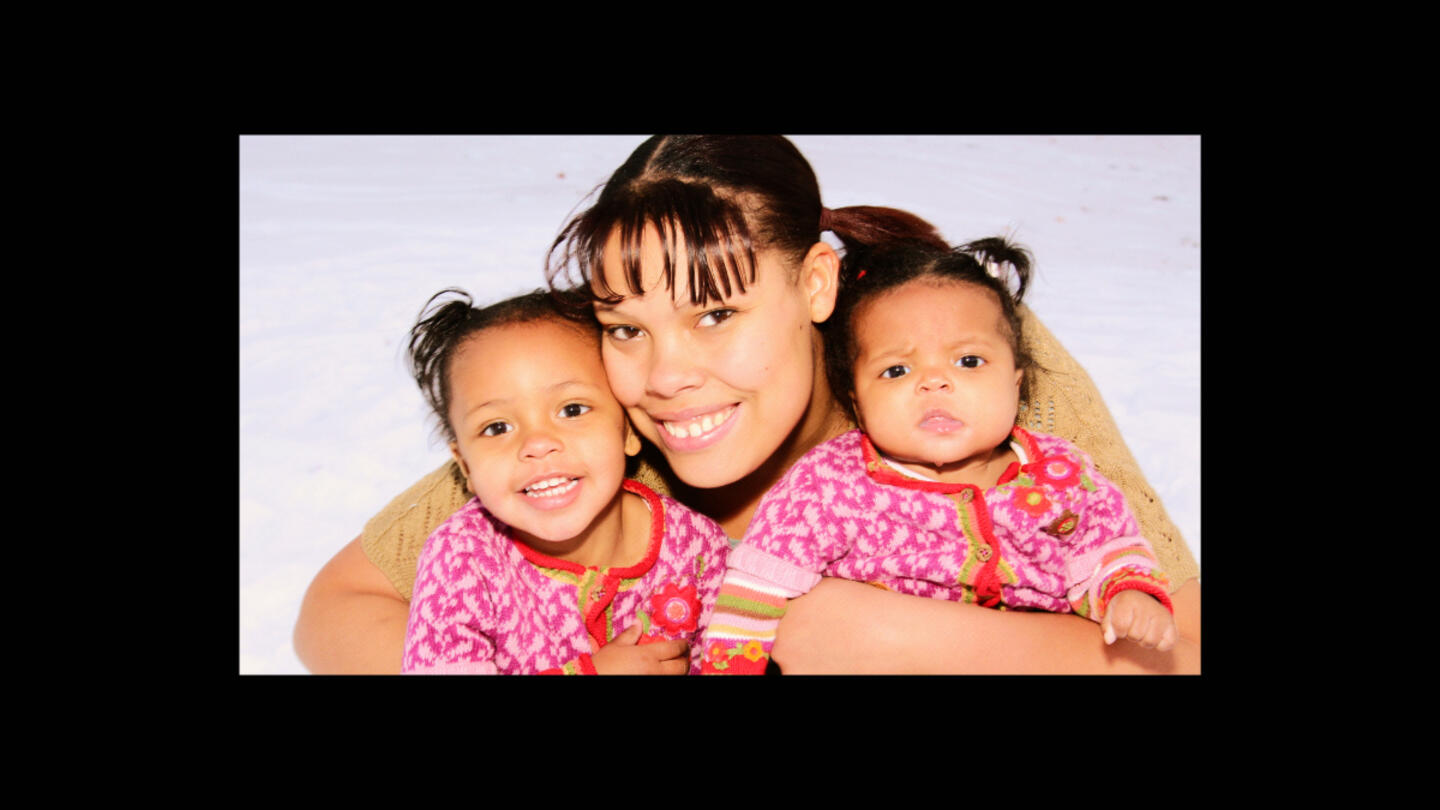One night, shortly after her second daughter was born, Brittany Williams got up to make a bottle for her baby. On her way back from the kitchen, Williams saw her one-year-old daughter standing in the hallway. The toddler was holding a handgun.
“That was the moment,” she said. “I was like, we're done here. I cannot raise these girls in this situation. They deserve better.”
Because of her age, Williams had been afraid to leave her partner, but the gun was the last straw. “I started aggressively searching for anything and everything,” she said. “I was only 17, so most places wouldn't even have a full conversation with me. I was just too young.”
Lisa Steven, the founder and executive director of Hope House Colorado, calls Williams’ resolve “mommy motivation.” She sees it in teen mothers all the time. “It’s the secret sauce,” she said. “They're so motivated to build a better life for their child than what they experienced.”
Steven, herself a former teen mom, understands the harmful stigma surrounding teen parenthood. That's why she established Hope House Colorado, a nonprofit empowering teen moms to achieve personal and economic self-sufficiency. It’s a process of transformation. Mothers in Steven’s care learn that they deserve dignity and they can break the cycle of poverty and dysfunction they grew up with.
This Mother’s Day, we’re celebrating the resilience and sacrifice of all mothers, including teen moms, who overcome immense challenges to create brighter futures for their children.
Low income is a symptom — not a cause — of poverty
Despite an overall decline in teen pregnancy, it continues to be a serious challenge to anti-poverty efforts in the United States. In 2020, there were nearly 160,000 babies born to teen mothers in America, 67% of of whom live in poverty.
These numbers only tell a small piece of the story. Steven explained that when a teen mom walks into Hope House, she is carrying a lifetime of baggage and trauma. “Her whole life has been a pattern of being beaten down,” she said.
It is common for a teen mom to come from a family with a history of generational poverty as well as domestic violence. A healthy, stable lifestyle with supportive relationships may be entirely foreign to her. Williams had never experienced respect or dignity in her close relationships. “That was never a dynamic in my life,” she said, “not with my parents, not with my grandparents.”
A teen mom has likely been shouldering adult responsibilities since she was very young, taking care of her siblings or even her parents. And when she has a baby as a teenager, she suddenly feels completely isolated. She encounters barely masked judgment on all sides — from family, friends, and strangers.
“My family made me feel like I'm the only teen who decided to do this,” said Jami Dayan, who had her first son when she was 17. “I’m like, okay, I literally feel hopeless.”
“[Teen moms] come with so little trust because everywhere they go, there's that sense of, ‘You can't make it, you won't get there,’” said Steven. “To break the cycle is so much more than making enough money. It’s really about transformation of the way they see themselves and how they view the world.”
Teen moms have more to contribute
When Steven’s son was six months old, she took him to the doctor's office for shots. “The doctor was clearly frustrated with me being a teenage mom,” she recalled.
A week later, social services knocked on her door with a report from the doctor that her son was showing signs of neurological distress and wasn’t being properly cared for. “Totally a lie,” said Steven. “Fortunately, it didn't go any further, but in my heart, it felt like she could have just walked out the door with my baby.”
Steven avoided social opportunities because of the stigma she experienced when she left the house, but her mother-in-law encouraged her to join Moms of Preschoolers, or “MOPs” as the group is known. To her surprise, the group welcomed Steven warmly. Eventually, they entrusted her with leading their “MOPs Kids” early education program.
“Not only was I welcomed into the group, but I was offered an opportunity to lead at a very young age,” she reflected. She led the program for eight years. By the time she moved on, she was overseeing 32 teachers and 250 kids. Steven discovered her value beyond being a teenage mom, realizing she still had much to offer her community.
“It was an incredible vote of confidence to give a very young person an opportunity to be a leader and see where that might go for me,” she said. “It's where we are now.” She now uses her experience as a teen mom to help other young mothers discover their value.
Sign up for the Strong & Safe Communities newsletter for stories, ideas, and advice from changemakers working with their neighbors to address the biggest problems we face.
Family care for each other within healthy boundaries
“We want our moms to see what family looks like,” said Steven, “that family respects each other, that they care for one another in a healthy way within healthy boundaries.”
Dayan learned this after a difficult time with her mother. After she became pregnant, Dayan’s relationship with her mother soured. Verbal fights escalated, even turning physical, prompting her to realize she and her son needed to leave. Her son’s father invited them to live with him.
She wasn’t afraid to move out as much as she was afraid to tell her mother. Setting boundaries was an entirely new concept to her. As the oldest daughter, she had always dropped everything the moment her mother called.
With help from her Hope House counselor, Dayan wrote her mother a letter explaining her reasons for leaving and left it behind when she moved out. Though initially upset, her mother eventually understood.
The decision not only preserved their relationship but also allowed Dayan space to flourish. "The month after I moved out, I saw a huge difference," she said about her relationship with her mother. Dayan got her GED, became a medical assistant, and took every class she could at Hope House, including one called, “Healthy Relationships.”
Seven years later, Dayan, who has a college degree, stays home to raise her two sons while her husband — their father — supports the family. She and her mother are closer than ever. "She’s like my best friend. There’s not a day I don’t call her."
Normalcy was a revelation
“Our theory of change is that transformation happens within long-term relationships with healthy adults,” said Steven. Hope House was the first place Williams experienced long-term healthy relationships. As a child, safety was scarce in her home, which is how she ended up on her own by the time she was 13. Impacted by generational poverty, toxic relationships, and abuse, she held out hope that there was more to life.
Shortly after the gun incident with her toddler, Williams and her daughters moved into Hope House. The sense of normalcy there was a revelation for her. The first evening, a pipe burst. She was amazed at how calm the adults were and that they all just went to Sonic for dinner while the repairs were being made.
“It was so empowering for me to see people fix problems in a healthy way,” she said. “The culture here was that you deserve dignity, so we're gonna treat you with dignity. They weren’t going out of their way to make me feel comfortable. It was just normal.”
That dignity reaffirmed her belief that she could create the life she wanted for her family. “I knew very clearly, even at that age, the mom that I wanted to be and the life that I wanted to have,” said Williams. “A lot of that inspiration came from my life as a child and what I knew for certain that I didn't want to duplicate. I knew I could be a good mom if I could just figure it out, if I could just have some people come alongside me to help me figure it out.”
Sixteen years later, she and her husband have five thriving kids. Her oldest — the toddler who once held the handgun — is deciding where to go to college next year.
Williams attributes her success as a person and mother to the lessons she learned while living at Hope House surrounded by “normal” people. Now, as housing support program manager for the nonprofit, she loves that her story is empowering other teen moms. “It’s so cool to see that the hardship doesn't have to be the end of the story,” she said. “There's so much light and love and life that can come from that. So many lives are being changed. It's so beautiful.”
As Steven explained, the most significant change is how these young women see themselves and the world. “If you could take a tour of this space,” said Steven, “you would see that we have big pictures everywhere of our moms with their kids just smiling and happy and thriving. [The pictures are saying], ‘This is how we see you. We see you as beautiful and strong and brave and thriving and smart.’”
It begs the question, what would happen to society’s biggest challenges if every person felt seen this way?
***
Hope House Colorado is supported by Stand Together Foundation, which partners with the nation’s most transformative nonprofits to break the cycle of poverty.
Learn more about Stand Together’s efforts to build strong and safe communities and explore ways you can partner with us.

People with disabilities want meaningful work — and Hugs Cafe is making it happen.

At this ‘resort,’ children with intellectual disabilities are seen as gifts to be celebrated and loved.

Veterans experience loss when leaving service. Could this be key to understanding their mental health?

The Grammy-nominated artist is highlighting the stories we don’t get to hear every day.
